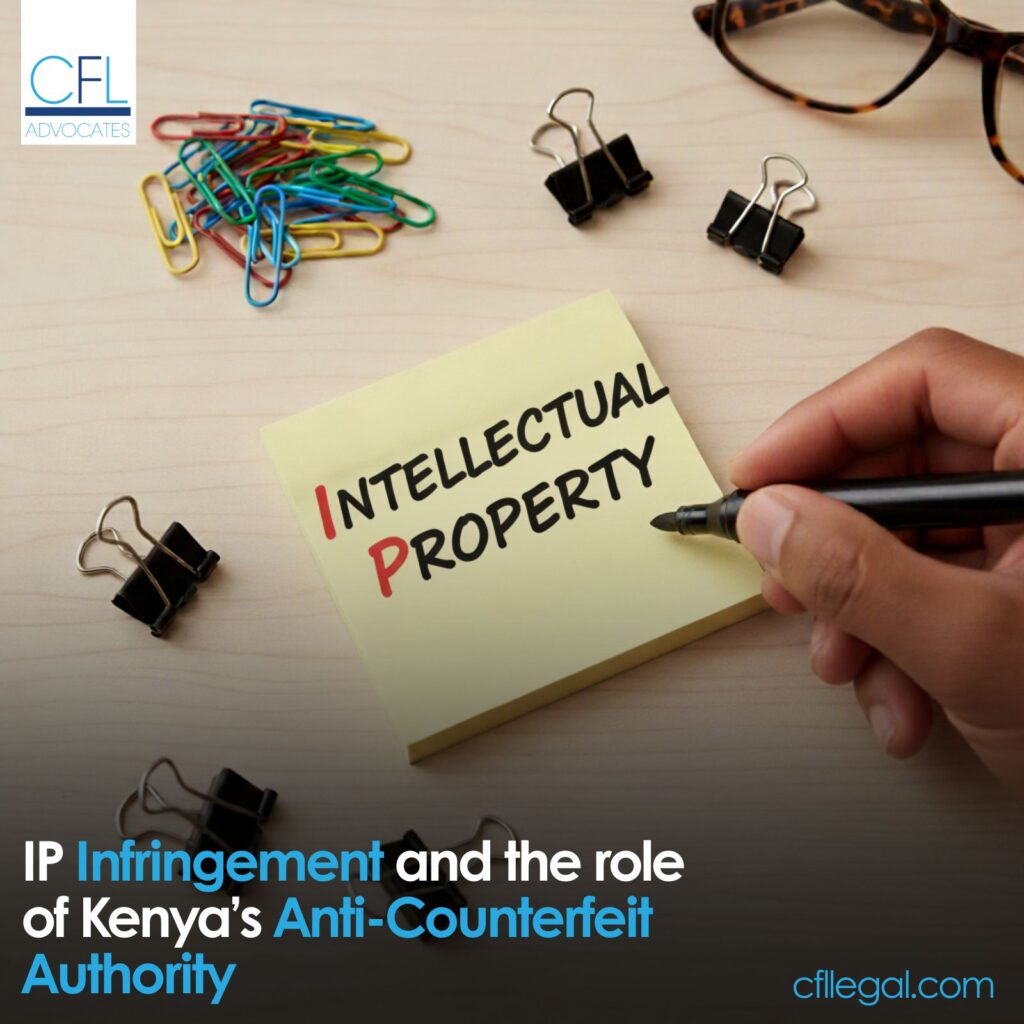
As Kenya strengthens its position as a regional hub for manufacturing, technology and creative industries, the protection of intellectual property (IP) has become more critical than ever. However, the rise in commercial activity has been accompanied by a surge in counterfeiting and IP violations affecting both local enterprises and global brands operating in the country.
The Anti-Counterfeit Authority (ACA) plays a central role in Kenya’s efforts to combat this trend. More than a regulatory body, the ACA is a key partner for rights holders in protecting their investments, preserving brand equity and ensuring market integrity.
Understanding IP infringement in Kenya
IP infringement occurs when protected intellectual property such as trade marks, patents, copyrights or industrial designs is used, copied or reproduced without the authorization of the rightful owner. This may include unauthorized commercial use, direct copying or imitation that violates the exclusive rights granted to the IP holder. Common forms of infringement in the Kenyan market include:
- Counterfeit goods bearing registered trade marks
- Unauthorized use of logos, slogans, or designs
- Replication of patented technology or utility models
- Copyright piracy in the form of illegal software, music, films, or publications
These acts not only dilute brand value but also disrupt fair competition, endanger consumers and disincentivize innovation. For businesses, the financial consequences include lost sales, increased compliance costs and reputational damage. For the government, counterfeiting contributes to tax leakage and weakens investor confidence in regulated industries.
The ACA’s mandate and enforcement role
Established under the Anti-Counterfeit Act, 2008, the ACA is mandated to combat trade in counterfeit goods and protect the rights of IP owners. It operates under the Ministry of Investments, Trade and Industry and works closely with customs, police, and other enforcement agencies.
Key functions of the ACA include:
- Investigating complaints of IP infringement and counterfeiting
- Seizing and destroying counterfeit goods
- Conducting market surveillance and raids
- Educating the public and private sector on IP rights and enforcement
- Operating the IP Recordation System, which facilitates border control and monitoring
As of July 2022, the ACA made it mandatory for all importers to record their IP rights with the Authority before importing goods into Kenya. This system allows customs officials to identify and block counterfeit shipments at entry points. For rights holders, recordation offers a first line of defense against counterfeiting. Once registered, the ACA can take swift action to detain and investigate suspicious goods.
Failing to record relevant trade marks or designs may lead to:
- Delays in customs clearance
- Entry of counterfeit goods that mimic unrecorded brands
- Loss of enforcement opportunities at the border
Strengthening IP protection in practice
For businesses operating in or importing to Kenya, protecting IP requires a coordinated approach. Key steps include:
- Registering IP rights including trade marks, copyrights, patents and designs with the relevant national bodies such as KIPI and KECOBO.
- Complying with ACA recordation regulations to ensure that trade marks associated with imported goods are recorded.
- Supporting enforcement efforts by providing product authentication details and lodging complaints where infringement is suspected.
- Raising public awareness through brand education and consumer engagement to help identify and reject counterfeit products.
Challenges and the path ahead
Despite the progress, enforcement in Kenya still faces challenges. These include limited technical capacity in some regions, rapidly evolving counterfeiting methods and occasional lapses in inter-agency coordination. However, ongoing reforms and greater stakeholder involvement are steadily closing these gaps. A successful IP enforcement strategy is not just about legal compliance, it is also about creating a market where innovation is rewarded, fair trade is upheld, and consumers are protected.
IP infringement is not a marginal issue, it is a direct threat to Kenya’s economic future. The ACA provides a strong institutional framework for rights holders to assert and defend their IP. By embracing recordation, engaging with enforcement agencies and remaining vigilant, businesses can protect their brands and contribute to a healthier and more competitive market.
For more information on intellectual property registration, ACA recordation, enforcement and litigation in Kenya, contact us at info@cfllegal.com


